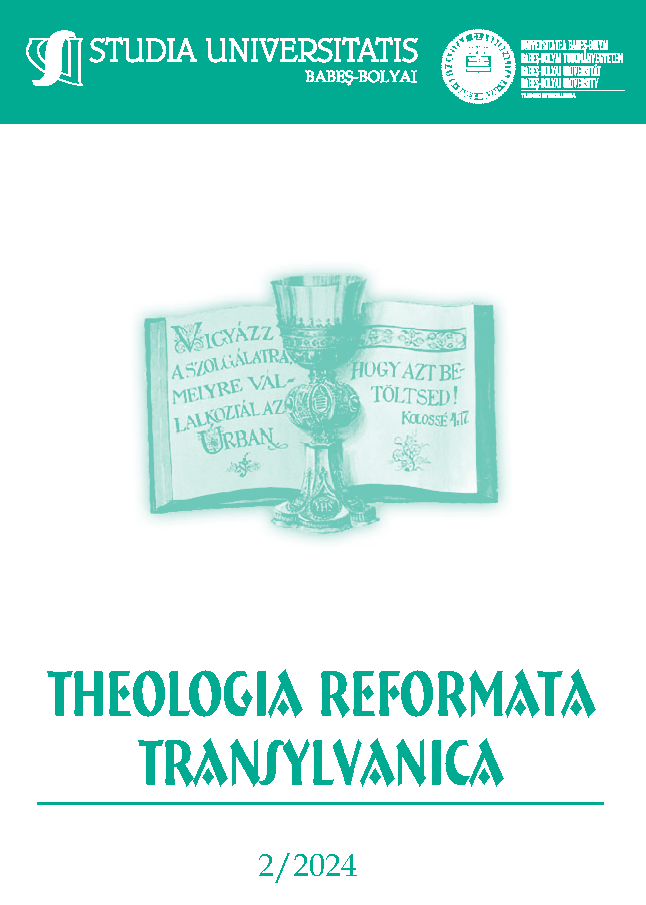A víziók szerepe a változás folyamatában és az élet re-víziója
DOI:
https://doi.org/10.24193/subbtref.69.2.16Keywords:
vision, hope, Christian perspective, micro-visions, life goalsAbstract
The Role of Visions in the Process of Change and Re-visioning Life. A vision is a possible imagined version of our future. In this essay, we look more generally at the role of hope and vision in our personal change and address the particular path to change that Christianity offers. Human life needs a structured set of goals, where smaller, short-term goals (micro-visions) and larger, long-term goals (big visions) are interlinked. Micro-vision motivates us on a daily basis, while big vision gives our lives long-term direction and meaning. Being able to find the big goals does not only prioritize the smaller ones, the projects of our lives but can also give us a sense of flexibility to let go of the tensions of everyday life, because we can see beyond the days, weeks, years and see the significance of the present in terms of the big picture. The vision of a possible and desired future can give us the strength to withstand the tensions of the present.
References
BORNHAUSER, T. (2000): Gott für Erwachsene – ein Konzept kirchlicher Erwachsenenbildung im Zeichen postmodernen Vielfalt. Stuttgart, Kohlhammer.
CAPPS, Donald (1990): Reframing – A New Method in Pastoral Care. Minneapolis, Augsburg Fortress.
EVERS, R. (1999): Alter, Bildung, Religion – Eine subjekt- und bildungstheoretische Untersuchung. Stuttgart, Kohlhammer.
GLADWELL, M. (2010): Ösztönösen – a döntésről másképp. Budapest, HVG Kiadó.
HAUERWAS, S. (1983): The Peaceable Kingdom: A Primer in Christian Ethics. Notre Dame (Indiana), University of Notre Dame.
JUNG, C. G. (2010): Gondolatok az életről és a halálról. Budapest, Kossuth Kiadó.
KLINGENBERGER, H. (1999): Biographiearbeit mit älteren Menschen – Über die Bedeutung von Erinnern und Erzählen, In: Dahlemann, P. – Münchmeier, A. – Sauter, S. (szerk.): Leben erinnern – Biographiearbeit mit Älteren. München: Evangelisches Bildungswerk München. 24–33.
MÉRŐ László (2008): Észjárások – remix. Budapest, Tericum Kiadó.
(2010): Az érzelmek logikája. Budapest, Tericum Kiadó.
NEALE, S. – SPENCER-ARNELL, L. – WILSON, L. (2009): Emotional Intelligence Coaching: Improving Performance for Leaders, Coaches. Hong Kong, Replica Press.
PÁL Ferenc (2011): A megbocsátás: belépés a spiritualitás világába, In: Bagdy Emőke – Koltai Mária – Pál Ferenc – Popper Péter: A belénk égett múlt – Elengedés, megbocsátás, újrakezdés. Budapest, Kulcslyuk Kiadó. 103–136.
PETERSON, Jordan (1999): Map of Meaning – The Architecture of Belief. New York – London, Routledge.
RITSCHL, D. (1967): Memory and Hope. New York, Macmillan.
SCHEUERMANN, P. (1996): Titkos tanterv a szupervízióban, In: Lippenmeyer, N. – Wiesner, E. (szerk.): A szupervízió világa. Supervisio Hungarica Füzetek III, Supervisio Hungarica, Salgótarján.
SWELLER, John – AYRES, Paul – KALYUGA, Slava (2011): Cognitive Load Theory. New York, Springer. DOI: https://doi.org/10.1007/978-1-4419-8126-4.
VILLENEUVE, D. (rend.). (2023): Dűne: Második rész. [Film]. Legendary Pictures, Warner Bros.
WATZLAWICK, P. – WEAKLAND, J. H. – FISCH, R. (1990): Változás – a problémák keletkezésének és megoldásának elvei. Budapest, Gondolat.
Downloads
Published
How to Cite
Issue
Section
License
Copyright (c) 2024 Studia Universitatis Babeș-Bolyai Theologia Reformata Transylvanica

This work is licensed under a Creative Commons Attribution-NonCommercial-NoDerivatives 4.0 International License.



